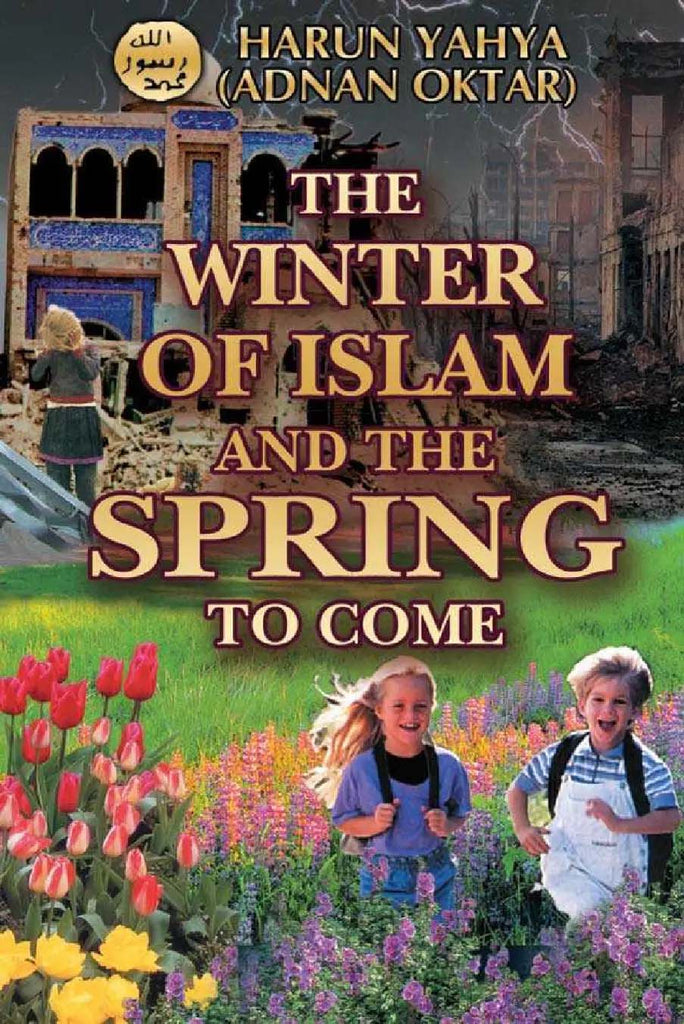
The intention behind this book is to lay bare the plight of innocent Muslims all over the world and to invite people of conscience to consider this situation and seek a solution.
Author: Harun Yahya; Carl Rossini
Publisher: Global Publishing
Pages: 263
Binding: Paperback
Description from the publisher:
Palestine, Chechnya, Bosnia, Kosovo, Kashmir, East Turkistan… More people die every day, women are raped, and children are shot or lose a foot after stepping on mines… At a time when millions of Muslims are suffering such terrible cruelty, it could be an act of the greatest heedlessness to refuse to shoulder any burden for Islam.The intention behind this book is to lay bare the plight of innocent Muslims all over the world and to invite people of conscience to consider this situation. And the solution is not far away; when Islamic morality holds sway over the entire world, cruelty will come to an end. By the will of Allah, the long-awaited spring is at hand.


Editor's note: Many photos in this book are very graphic scenes of death and suffering; not intended for young children.
A call to all people of conscience...
What people come across frequently, they tend to eventually grow used to. This familiarity can so develop over time that things that elicit violent surprise or protest when first witnessed become routine matters just a short while later.
The wars and conflicts taking place in our world are a case in point. When a country is first occupied and slaughter or genocide first begins, this can lead to violent protests worldwide. Let us, for instance, consider the first days of the Bosnian conflict, or Chechnya, or Palestine… The image of a Palestinian child on his father's lap who will soon be a target for the bullets of Israeli soldiers, Chechen babies murdered in their nappies, women, the elderly, and children alike subjected to a terrible genocide in Bosnia…
When people first see such images, they often talk about their feelings of outrage and say they want to do something. However, over time the never-ending stream of horrific reports ceases to attract their attention anymore. More people die every day, women are raped, and children are shot or lose a foot after stepping on mines… However, people's reactions in the early days are replaced by an odd insensitivity. When they buy a newspaper, they are often more interested in celebrity gossip than stories of war. That is because the deaths of a few people in Palestine, Chechnya, Kashmir, or East Turkestan have become merely "routine news."
Moreover, propaganda at the same time portrays all this savagery as political developments. Thus it is that many people see the continuing slaughter in Chechnya as an internal Russian affair, what is going on in Palestine as a struggle for land between Israel and Palestine, and the Hindu oppression of the people of Kashmir as a problem rooted in the region's strategic position. Among others, it is true that historical and economic factors do play a role in the emergence of conflict. Chechnya is of great economic and strategic importance to Russia. Fanatical Jews have maintained the intention of occupying Jerusalem and other Palestinian territories for centuries. However, internal or economic problems aren't the only cause of the oppression visited on the Chechen people by the Russian administration, nor the violence that Muslim peoples in Africa are subjected to, nor the violent cruelty and ethnic cleansing suffered before the eyes of the whole world by Muslims in the Balkans. As we shall see in later chapters of this book, these people's Muslim identity is one of the main reasons for these conflicts.
Since these people believe in Allah and want to live their lives according to the demands of their religion, and want to raise their children to be believers too, they are subjected to various forms of oppression. The existence of strong states upholding spiritual values or a strong union of Islamic nations that would protect the rights of Muslims within a legal framework of justice gives rise to grave concerns among certain circles in the West and poses a threat to the interests of certain others.
Another aspect of the matter is that some people know nothing about the people who live in these countries and often have never even heard of the countries themselves. The situation of someone who has no idea of the difficulties, oppression, and acts of violence, hunger, and poverty suffered by Muslims living in Sudan, Algeria, Indonesia, Myanmar, Djibouti, and Tunisia is certainly food for thought. It is impossible for such a person to extend a helping hand to believers whom he does not know even exist. Other people are aware of this cruelty and injustice. Yet it does not even occur to them that they might be able to help or try to put an end to the oppression. Furthermore, they so convince themselves that they are unable to do anything about it that neither the reports they read nor the images they see on the television screen trouble their consciences in the slightest.
A true believer, however, is responsible for all that he hears and sees. Allah calls on Muslims in the Qur'an:
What reason could you have for not fighting in the Way of Allah - for those men, women, and children who are oppressed and say, "Our Lord, take us out of this city whose inhabitants are wrongdoers! Give us a protector from You! Give us a helper from You!" (Qur'an, 4: 75)
There is no question, of course, of people of conscience who obey the command contained in that verse closing their eyes and ignoring what is going on. It is impossible for a Muslim to sleep irresponsibly in his comfortable bed, fritter away his time, and think only about his own pleasure and interests when such violent cruelty is going on in the world. That is because a believer knows that the fundamental solution to unjust wars, massacres, cruelty, hunger, and moral degeneration, in short to all of the world's problems, lies in spreading the morality of the Qur'an. That knowledge places a great responsibility on his shoulders: that of explaining the religion of Islam and the beautiful things it brings with it, propagating the morality of the Qur'an, and waging a war of ideas against atheism…
Those who take on that honorable duty will free all those who are oppressed in the world by the guidance of the Qur'an:
... A Light has come to you from Allah and a Clear Book. By it, Allah guides those who follow what pleases Him to the ways of Peace. He will bring them from the darkness to the light by His permission, and guide them to a straight path. (Qur'an, 5: 15-16)

